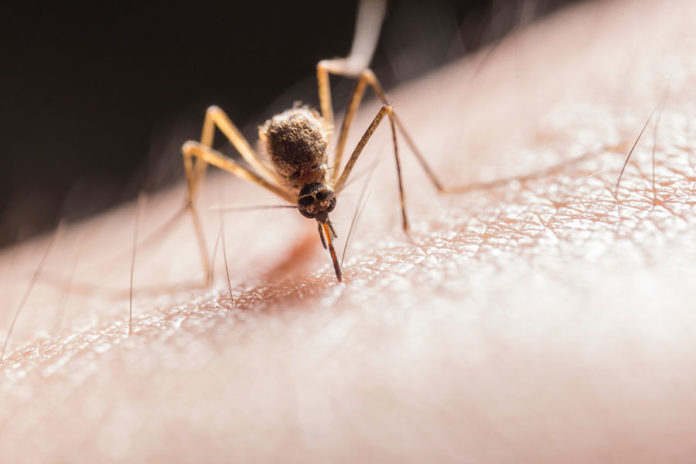PHILADELPHIA–The Philadelphia Department of Public Health’s Vector Control staff is planning to apply a new larvicidal treatment for mosquito control on Tuesday evening, July 13th, after midnight by the Greenmount Cemetery. See the map below for specific locations.
Tuesday’s spraying is part of a new state-funded program to reduce the number of mosquitoes in areas that have had West Nile Virus-positive mosquitoes in past years, as part of continued multi-layer mosquito control activities. Every mosquito season, Vector Control Services works to reduce the number of mosquito larvae by treating sewer inlets and encouraging residents to dump standing water, monitors for West Nile Virus-positive mosquitoes, and occasionally sprays to kill adult mosquitoes.
The larvicide treatment will be administered via a truck-mounted machine spraying fine aerosol droplets. The aerosol contains Bti, which is a naturally occurring bacteria found in soil. It is a bacterial insecticide, not a chemical. It produces proteins that only kill the larval stage of mosquitoes, black flies, and other closely related flies. Bti has undergone nearly 40 years of lab and field research and has been used for more than 30 years around the world to eliminate mosquito larvae.
Bti has been shown in numerous studies to be non-pathogenic and non-toxic to wildlife (including other insects, birds, fish, and mammals) as well as humans. More information on VectoBac, the specific product, can be found here.
Video footage of the truck-mounted spraying done during daylight hours and more information about mosquito prevention can be found on the Health Department’s YouTube channel.
Certain mosquito species carry West Nile virus, which, when transmitted to people, can cause West Nile encephalitis, and infection that can result in an inflammation of the brain. Individuals are urged to take personal protection precautions to avoid being bitten by mosquitoes. Many mosquitoes are most active at dusk and dawn. Be sure to use insect repellent with an EPA registered active ingredient and wear long sleeves and pants at these times or consider staying indoors during these hours.
Individuals can take a number of measures around the home to help eliminate mosquito-breeding areas, including:
- Dispose of tin cans, plastic containers, ceramic pots or similar water-holding containers that have collected on your property.
- Drain or dispose of discarded tires where mosquitoes breed.
- Drill holes in the bottom of outdoor recycling containers.
- Have clogged roof gutters cleaned. Roof gutters can produce millions of mosquitoes each season.
- Turn over plastic wading pools when not in use.
- Turn over wheelbarrows.
- Don’t let water stagnate in birdbaths.
- Aerate ornamental pools or stock them with fish.
- Clean and chlorinate swimming pools. A swimming pool left untended by a family on vacation for a month can produce enough mosquitoes to result in a neighborhood-wide problem.
To prevent mosquito bites:
- Make sure screens fit tightly over doors and windows to keep mosquitoes out of homes.
- Wear long-sleeved shirts, long pants and socks when outdoors, particularly when mosquitoes are most active at dawn and dusk, or in areas known to have large numbers of mosquitoes.
- When possible, reduce outdoor exposure at dawn and dusk during peak mosquito periods, usually April through October.
- Use insect repellents according to the manufacturer’s instructions. An effective repellent will contain DEET, picaridin, or oil of lemon eucalyptus.
- Consult with a pediatrician or family physician about the use of repellent on children. (Repellent is not recommended for children under the age of two months.)
For more information about West Nile virus and the state’s surveillance and control program, go to https://gis.dep.pa.gov/WNV/index.html. For questions of the West Nile Virus program or to report mosquito infestations in Philadelphia, call 215-685-9000.























